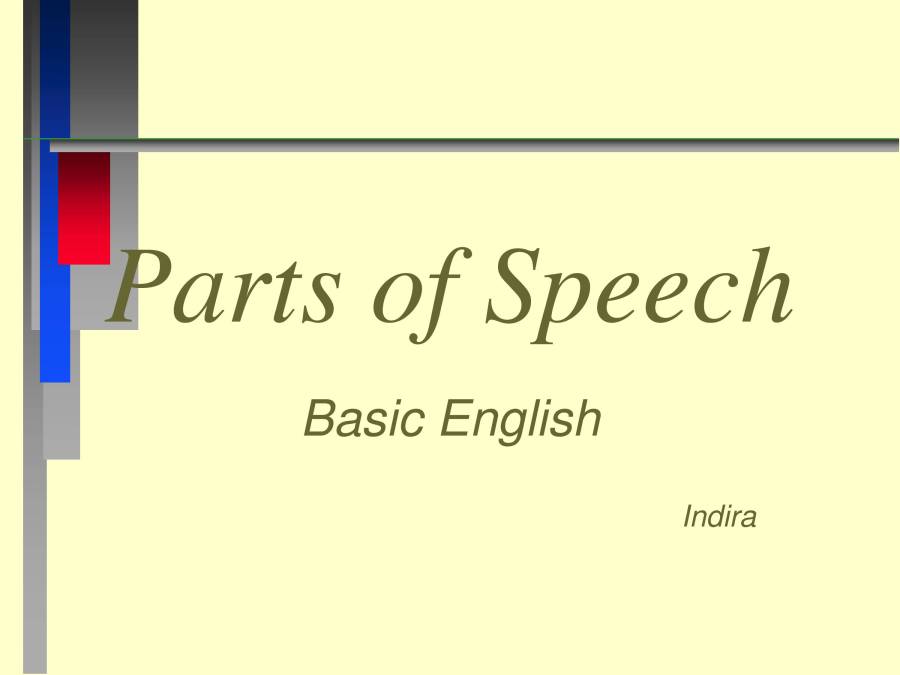 Hire a Tutor
Hire a Tutor 








































This PPT will give a basic knowledge on Parts of Speech.
8 years of teaching experience
Qualification: PhD Lit, M.Ed TESL, BA ELS
Teaches: English, Biology, History, Bahasa Malaysia, MUET (English Test), Pengajian AM
